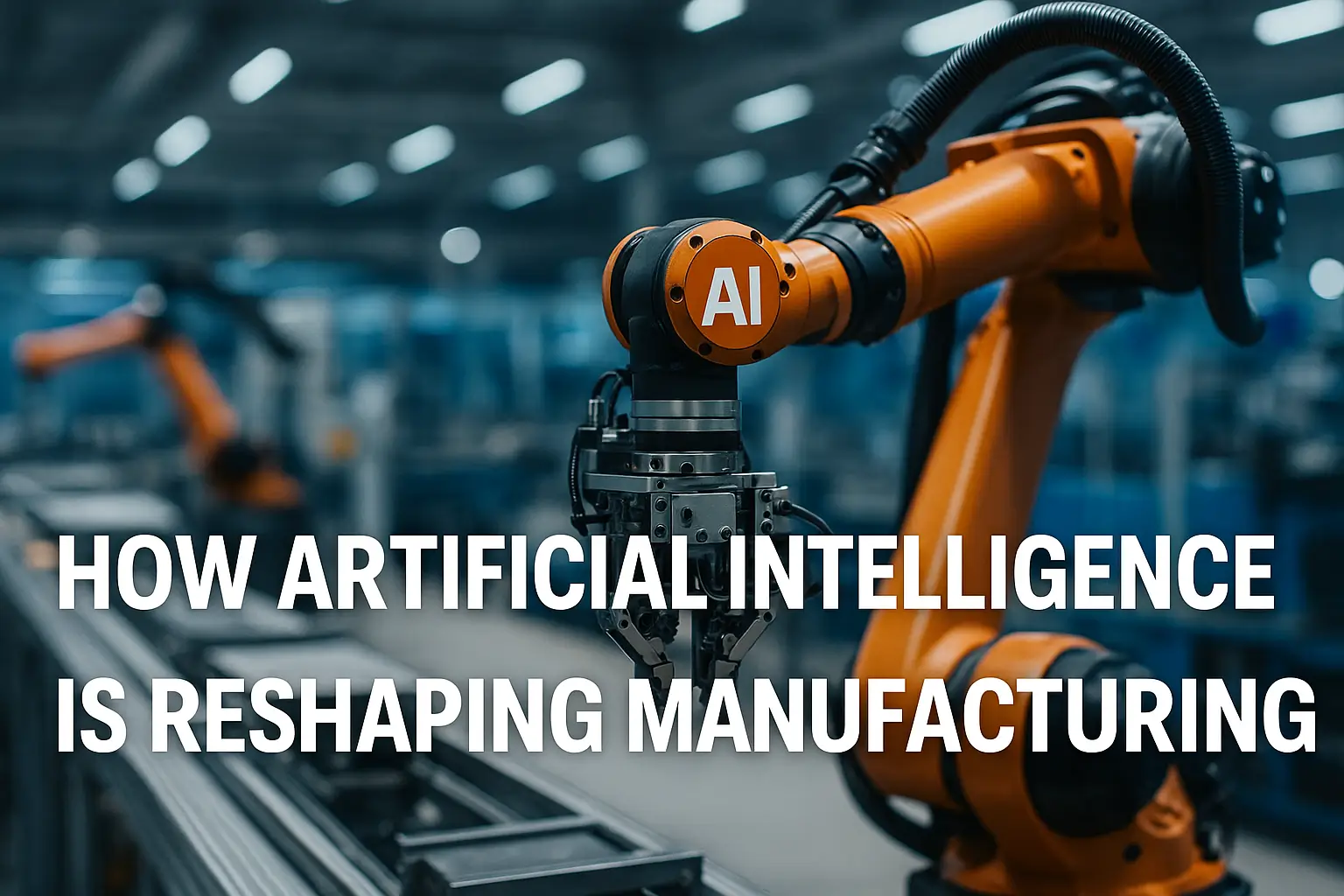Artificial Intelligence (AI) is driving the next industrial revolution—often called Industry 4.0—by transforming how products are designed, produced, and maintained. From predictive maintenance to smart automation and quality control, AI is making manufacturing faster, safer, and more efficient.
This article explores how AI is revolutionizing manufacturing and what it means for businesses and workers worldwide.
AI in Predictive Maintenance
Unplanned downtime is one of the biggest costs in manufacturing. AI helps prevent it by:
- Analyzing sensor data to monitor equipment health
- Detecting early warning signs of failures
- Scheduling maintenance when needed, instead of on fixed intervals
- Reducing repair costs and extending equipment life
Companies like Siemens and GE use AI-powered predictive maintenance to save millions annually.
AI in Quality Control
AI vision systems improve quality by:
- Inspecting products for defects faster than humans
- Detecting inconsistencies invisible to the naked eye
- Learning from new data to improve accuracy over time
For example, AI can spot tiny cracks, color variations, or incorrect assembly in real time, preventing defective products from reaching customers.
Smart Robotics and Automation
AI-powered robots are more flexible and intelligent than traditional automation. They can:
- Adapt to changing production requirements
- Collaborate safely with human workers (cobots)
- Assemble complex components with precision
- Optimize workflows dynamically
Manufacturers like BMW and FANUC use AI robotics to boost productivity and safety on the factory floor.
AI in Supply Chain Optimization
AI enhances manufacturing supply chains by:
- Forecasting demand to adjust production schedules
- Identifying optimal suppliers and logistics partners
- Managing inventory levels automatically
- Predicting disruptions and recommending contingency plans
This leads to leaner, more responsive operations.
AI in Process Optimization
AI models analyze data from every stage of production to:
- Identify bottlenecks and inefficiencies
- Recommend process improvements
- Reduce energy consumption and material waste
- Simulate new manufacturing scenarios before implementation
These insights drive continuous improvement and cost reduction.
AI in Product Design and Innovation
AI accelerates product development by:
- Generating design alternatives based on performance criteria
- Simulating stress tests and material behavior
- Personalizing products to customer specifications
- Shortening time to market
Generative design tools from Autodesk and Siemens are reshaping engineering workflows.
AI in Worker Safety
AI systems improve safety by:
- Monitoring compliance with safety protocols via cameras and sensors
- Alerting managers to hazardous conditions
- Automating reporting of incidents and near misses
- Assisting with training through VR and simulation
This reduces accidents and promotes a culture of safety.
Benefits of AI in Manufacturing
1. Higher Efficiency
Automation and data-driven insights accelerate production.
2. Better Quality
AI reduces defects and improves consistency.
3. Cost Savings
Predictive maintenance and optimized processes lower expenses.
4. Greater Flexibility
Smart systems adapt to demand fluctuations and customization.
5. Sustainability
AI minimizes waste, energy use, and environmental impact.
Challenges and Considerations
While AI offers significant advantages, manufacturers face challenges:
1. High Upfront Costs
AI systems require investments in hardware, software, and training.
2. Data Integration
Combining data from legacy systems can be complex.
3. Skills Gap
Workers need training to manage and interpret AI tools.
4. Cybersecurity Risks
Connected systems increase exposure to attacks.
5. Change Management
Cultural resistance can slow AI adoption.
Future Trends in AI Manufacturing
Looking ahead, expect:
- Digital twins that simulate entire factories in real time
- Self-optimizing production lines
- AI-powered 3D printing workflows
- More advanced cobots
- Decentralized, on-demand manufacturing networks
These innovations will redefine industrial production in the coming decade.
Final Thoughts: A Smarter Factory Floor
Artificial Intelligence is no longer optional in manufacturing—it’s a strategic necessity. Companies that embrace AI are building factories that are not only more productive and cost-effective, but also more sustainable and resilient.
By blending human expertise with machine intelligence, manufacturers can unlock new levels of innovation and competitiveness.
